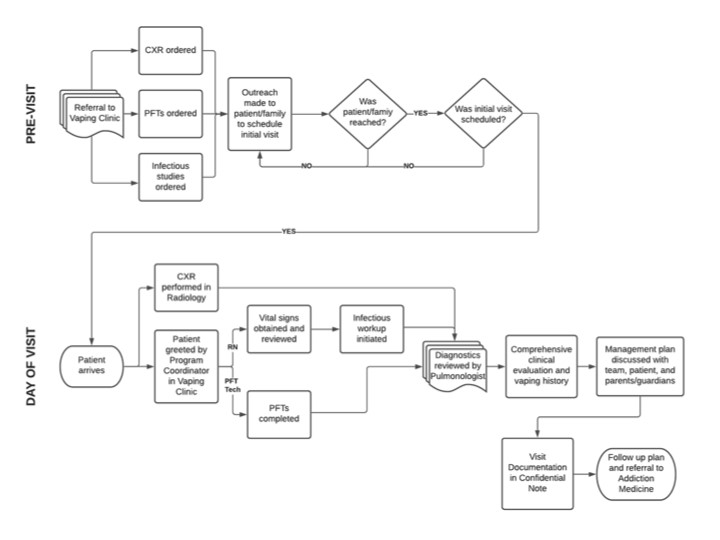
Education&ScienceEducational Articles
Educational Articles
Clinical Presentation and Diagnostic Evaluation of Vaping Related Lung Injury in Youth
July 2025
Authors: Eleanor D. Muise, Rachel Gordon, Jacqueline Steiding, Keri Sullivan, Catherine A. Sheils, Alicia M. Casey

Comment by Mark Lavercombe: In the twenty-two years since the invention of the first modern e-cigarette, there has been an explosion in the available devices and liquids. Jurisdictions have applied different approaches to e-cigarette use, from embracing them as a harm minimisation strategy for nicotine-addicted cigarette smokers to requiring a medical prescription. The e-cigarette or vaping product use-associated lung injury (EVALI) outbreak in 2019 in the United States (USA) led to a renewed focus on the risks of these devices. In the current paper, the authors describe a comprehensive, multidisciplinary approach to patients who are vaping, aged 10-35 years, in Boston, USA, and suspected of lung injury. They report a significant prevalence of EVALI, including in their outpatients, and highlight the value of their interdisciplinary approach to diagnosis and treatment.
Medical Education Editor for Respirology
Dr Mark Lavercombe was appointed in this specialist editor role in 2021 to further expand and strengthen Respirology’s contribution to medical education.
Located in Melbourne, Australia, he works as a clinician in respiratory health and sleep disorders at Western Health and is affiliated with The University of Melbourne as a distinguished expert in medical education.
He became a member of our Editorial Board in 2016 with the responsibility of selecting new Respirology publications with educational value, which has grown into a curated article selection featured on this page, as a benefit to APSR members.
Dr Lavercombe also authors a column in Respirology on his most recent choices and their specific value to continued medical education for our readers around the world.




